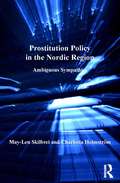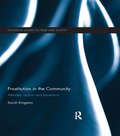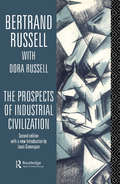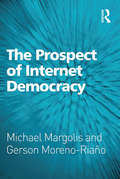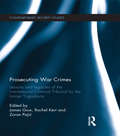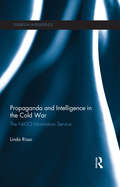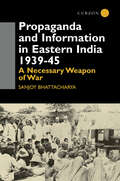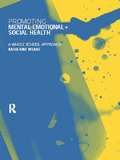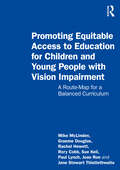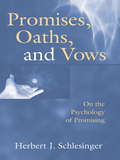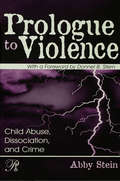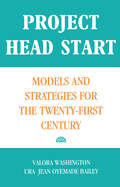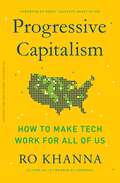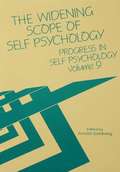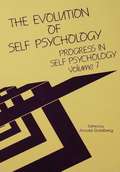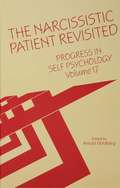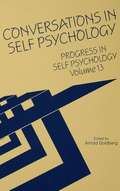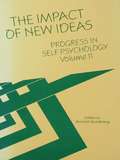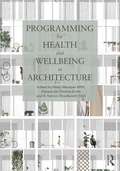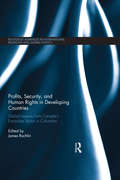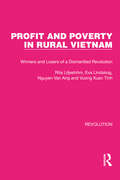Special Collections
Benetech’s Global Certified Accessible Titles
Description: Benetech’s GCA program is the first independent third-party EPUB certification to verify ebook accessibility. By creating content that is born accessible, publishers can meet the needs of all readers. Learn more: https://bornaccessible.benetech.org/
- Table View
- List View
Prostitution Policy in the Nordic Region
by May-Len Skilbrei and Charlotta HolmströmThere is great interest internationally in the development of prostitution policies in the Nordic countries after Sweden, Norway and Iceland have introduced general bans against buying sex whilst selling sex remains legal. In addition, there is a partial ban against buying sex in Finland. This is a different approach from that of several other European countries, where we have seen a decriminalisation of third-party involvement in prostitution as well as to that of the USA which criminalises both the buying and selling of sexual services. Thus the Nordic countries are often treated as representatives of a 'Nordic model' of prostitution policies. In this book - the first on the subject - Skilbrei and Holmström argue that these models of policies or policy regimes tend to ignore the trajectories, contexts and consequences of the full range of approaches to prostitution, thus they are too simplistic and static. Prostitution policies in the Nordic countries are multifaceted and dynamic, and cannot be represented as following a straight path and detached from empirical contexts. Their analysis treats Nordic prostitution policies both as a product of history, of current national and Nordic debates, and of international obligations and changes in the international and national prostitution markets. Furthermore they argue that a broad understanding of the relevant context is necessary so as to place Nordic prostitution policies within broader policy concerns related to gender, class, ethnicity, sexuality, social welfare, immigration and organised crime, as well as to neoliberal forms of governance.
Prostitution in the Community
by Sarah KingstonProstitution often causes significant anxiety for communities. These communities have been known to campaign against its presence in ‘their’ neighbourhoods, seeking the removal of street sex workers and their male clients. Although research and literature has begun to explore prostitution from the standpoint of the community, there is no comprehensive text which brings together some of the current literature in this area. This book aspires to cast light on some of this work by exploring the nature, extent and visibility of prostitution in residential communities and business areas, considering the legal and social context in which it is situated, and the community responses of those who live and work in areas of sex work. This book aims to examine current literature on the impacts of prostitution in residential areas and considers how different policy approaches employed by the police and local authorities have mediated and shaped the nature of sex work in different communities. It explores what communities think about prostitution and those involved, as well as studies the techniques and strategies communities have utilized to take action against prostitution in their neighbourhoods. This book will also demonstrate the diversity of public attitudes, action and reaction to prostitution in the community. This book is a useful contribution for academics and researchers in the fields of Criminology and Sociology who wish to understand current policy initiatives surrounding the issue of prostitution in local, national and international community settings.
The Prospects of Industrial Civilisation
by Bertrand Russell and Dora RussellThe Prospects of Industrial Civilization provides a rare glimpse into areas of Russell's political thought which are often ignored. Written with Dora Black (who became Russell's second wife) on a trip to China in 1920, it is revealing both as a period piece and as a book for our times. Russell criticises his own age, and demonstrates how humanity perpetually struggles against the centralising forces of industrialism and nationalism. He views industrialism as a threat to human freedom, as it creates large populations which have to be subject to controls and he likens Bolshevik Russia to Cromwell's England, asserting that both were dictatorships designed to force an essentially feudal society to adopt industrialism. He sees industrialism and nationalism as fundamentally linked and proposes one government for the whole world as a solution. Russell is not blind to the positive side of industrialism; without machines an economy of subsistence would be the best for which society could hope, but argues that the global village and prevailing political democracy should be its eventual results.
The Prospect of War
by John GoochFirst Published in 1981. Routledge is an imprint of Taylor & Francis, an informa company.
The Prospect of Internet Democracy
by Michael Margolis and Gerson Moreno-RiañoThe internet opens up new opportunities for citizens to organize and mobilize for action but it also provides new channels that established political, social and economic interests can use to extend their powers. Will the internet revolutionize politics? The Prospect of Internet Democracy is a rich and detailed exploration of the theoretical implications of the internet and related information and communication technologies (ICTs) for democratic theory. Focusing in particular on how political uses of the internet have affected or seem likely to affect patterns of influence among citizens, interest groups and political institutions, the authors examine whether the internet's impact on democratic politics is destined to repeat the history of other innovative ICTs. The volume explores the likely long-term effects of such uses on the conduct of politics in the USA and other nations that declare themselves modern democracies and assesses the extent to which they help or hinder viable democratic governance.
Prosecuting War Crimes
by Rachel Kerr and James Gow and Zoran PajićThis volume examines the legacy of the International Criminal Tribunal for the former Yugoslavia (ICTY), which was created under Chapter VII of the UN Charter as a mechanism explicitly aimed at the restoration and maintenance of international peace and security. As the ICTY has now entered its twentieth year, this volume reflects on the record and practices of the Tribunal. Since it was established, it has had enormous impact on the procedural, jurisprudential and institutional development of international criminal law, as well as the international criminal justice project. This will be its international legacy, but its legacy in the region where the crimes under its jurisdiction took place is less clear; research has shown that reactions to the ICTY have been mixed among the communities most affected by its work. Bringing together a range of key thinkers in the field, Prosecuting War Crimes explores these findings and discusses why many feel that the ICTY has failed to fully engage with people’s experiences and meet their expectations. This book will be of much interest to students of war crimes, international criminal law, Central and East European politics, human rights, and peace and conflict studies.
Property in Work
by Wanjiru NjoyaThe notion of property in work has deep historical roots in the common law tradition, but is yet to receive the attention it deserves. In this timely and thought-provoking book, Wanjiru Njoya contrasts ideas of ownership and property rights in English, American and European labour law, and considers their practical implications. The author's contention that shared ownership within a stakeholder theory of the firm allows better protection of both shareholders' and employees' interests in the large public corporation, puts employee-participation firmly back on the corporate governance agenda. The book offers a refreshing new perspective on how a more socially desirable balance between economic flexibility and job security may be achieved.
Propaganda and Intelligence in the Cold War
by Linda RissoThis book offers the first account of the foundation, organisation and activities of the NATO Information Service (NATIS) during the Cold War. During the Cold War, NATIS was pivotal in bringing national delegations together to discuss their security, information and intelligence concerns and, when appropriate or possible, to devise a common response to the ‘Communist threat’. At the same time, NATIS liaised with bodies like the Atlantic Institute and the Bilderberg group in the attempt to promote a coordinated western response. The NATO archive material also shows that NATIS carried out its own information and intelligence activities. Propaganda and Intelligence in the Cold War provides the first sustained study of the history of NATIS throughout the Cold War. Examining the role of NATIS as a forum for the exchange of ideas and techniques about how to develop and run propaganda programmes, this book presents a sophisticated understanding of the extent to which national information agencies collaborated. By focusing on the degree of cooperation on cultural and information activities, this analysis of NATIS also contributes to the history of NATO as a political alliance and reminds us that NATO was – and still is – primarily a political organisation. This book will be of much interest to students of NATO, Cold War studies, intelligence studies, and IR in general.
Propaganda and Information in Eastern India 1939-45
by Sanjoy BhattacharyaThis is a study of the social, political, economic and public health aspects of the Second World War in South Asia, with particular attention being accorded to colonial Eastern India, which was treated as a single administrative unit during the course of the conflict for strategic purposes. The conclusion deals with the long term effects of the war: its effects on political formations, bureaucratic re-negotiation and the de-colonisation of the British Indian empire.
Promoting Mental, Emotional and Social Health
by Katherine WeareSchools are now seen as being one of the key agents which can help redress society's most fundamental problems, create more cohesive communities and promote citizenship and a sense of social conscience in the young. Promoting Mental, Emotional and Social Health: A Whole School Approach provides a clear and practical overview of ways in which mainstream schools can promote the health of all those who work and learn in them.Supported by the latest new evidence from the UK and Europe as well as findings from the USA, it outlines and examines:* evidence that social and emotional learning and academic achievement can go hand in hand and that the same key factors underlie both happy and effective schools* the areas of school life that are the key to promoting social and affective health, including relationships with families and the community, management and the curriculum* the competencies that we all need to become more emotionally literate and relate to more effectively.
Promoting Equitable Access to Education for Children and Young People with Vision Impairment
by Paul Lynch and Mike Mclinden and Rory Cobb and Joao Roe and Graeme Douglas and Rachel Hewett and Sue Keil and Jane Stewart ThistlethwaitePromoting Equitable Access to Education for Children and Young People with Vision Impairment offers a suitable vocabulary and developmental route map to examine the changing influences on promoting equitable access to education for learners with vision impairment in different contexts and settings, throughout a given educational pathway. Bringing together a wide range of perspectives, this book argues that inclusive educational systems and teaching approaches should focus upon promoting and sustaining a balanced curriculum. It provides an analysis of how a suitable curriculum balance can be promoted and sustained through the stages of a given educational pathway to ensure equitable access and progression for all learners with vision impairment. The authors draw on the United Kingdom as a country study to illustrate the complex ecosystem within which learners with vision impairment are educated. Structured around a framework which provides a conceptually coherent and practical balance between universal and specialist approaches, this book is a relevant read for educators, academics, and researchers involved in vision impairment education as well as officials in government and non-government organisations engaged in developing education policy relating to inclusive education and disability.
Promises, Oaths, and Vows
by Herbert J. SchlesingerConsidering that getting along in civil society is based on the expectation that (most) people will do what they say they will do, i.e., essentially live up to their explicit or implicit promises, it is amazing that so little scientific attention has been given to the act of promising. A great deal of research has been done on the moral development of children, for example, but not on the child’s ability to make and keep a promise, one of the highest moral achievements. What makes it possible developmentally, cognitively, and emotionally to make a promise in the first place? And on the other hand, what compels one to keep a promise (or vow or threat) when there seems to be no personal advantage in doing so, and even when harm can be predicted? How do we know when a promise is offered seriously to be taken at face value, and how do we understand that another is only a polite gesture, not to be taken seriously? In Promises, Oaths, and Vows: On the Psychology of Promising, Herbert Schlesinger addresses these questions, drawing on the literature of moral development in children; the psychotherapy of a patient who regularly broke promises that were unnecessary in the first place; those who were regarded as "promising youngsters" who did not fulfill their "promise"; and those who feared making a promise, a commitment, or a threat out of fear that, once made, the utterance would take on a life of its own and could never be taken back. Furthermore, he illustrates his conclusions by examining the widespread use of promising in classical literature, such as Greek drama and the plays of Shakespeare, as well as the motivating and reifying power of the promise in Western religious traditions. With a style honed over the penning of two previous books, Schlesinger once again produces a work grounded in a firm analytic sensibility, but which also retains the wit and candor of the seasoned analyst. His seminal investigation of this all but neglected topic in the clinical literature is as timely as it is scholarly, and – with the title firmly in mind – Promises, Oaths, and Vows is assured to be a worthy addition to any clinician’s library and a provoking investigation into Nietzsche’s notion of man as "the animal who makes promises."
Prologue to Violence
by Abby SteinDespite mounting references to the "transgenerational transmission of violence," we still lack a compelling understanding of the linkage between the interpersonal violence of early life and the criminal violence of adulthood. In Prologue to Violence, Abby Stein draws on the gripping narratives of 65 incarcerated subjects and extensive material from law enforcement files to remedy this lacuna in both the forensic and psychodynamic literature. In the process, she calls into question prevailing beliefs about criminal character and motivation. For Stein the early trauma to which adult criminals are subjected remains unformulated and, as such, unavailable for reflection. Contrary to common belief, these criminals, especially sex murderers, do not commit their crimes in a rational or fully conscious way. They are not driven by deviant fantasy, their psychopathy is not inborn, and they rarely commit acts of violence "without conscience." Stein’s interdisciplinary analysis of her data infuses contemporary relational psychoanalysis with the insights of neuroscience, traumatology, criminology, and cognitive and narrative psychology. A powerful challenge to offender treatment programs to address the shaping impact of childhood trauma rather than merely to "correct" the cognitions of violent offenders, Prologue to Violence will be equally compelling to researchers and academics investigating child abuse and adult violence. Its mental health readership will be broad and deep, ranging beyond clinicians who work with offender populations to all therapists who wrestle with experiences of dissociation and aggressive enactment in everyday life.
Project Head Start
by Ura Jean Bailey and Valora WashingtonFirst Published in 1995. Routledge is an imprint of Taylor & Francis, an informa company.
Progressive Capitalism
by Ro KhannaCongressman Ro Khanna offers a revolutionary, &“progressive&” (James J. Heckman, Nobel Prize winner and professor of economics at the University of Chicago) roadmap to facing America&’s digital divide, offering greater economic prosperity to all. In Khanna&’s vision, &“just as people can move to technology, technology can move to people&” (from the foreword by Amartya Sen, Nobel Laureate in Economics) where &“Khanna envisions redistributing opportunities from coastal cities to rural middle-America…An exciting vision, brilliantly rendered.&” (Arlie Russell Hochschild, author of Strangers in Their Own Land).Unequal access to technology and the revenue it creates is one of the most pressing issues in the United States. An economic gulf exists between those who have struck gold in the tech industry and those left behind by the digital revolution; a geographic divide between those in the coastal tech industry and those in the heartland whose jobs have been automated; and existing inequalities in the technological access—students without computers, rural workers with spotty WiFi, and many workers without the luxury to work remotely. Congressman Ro Khanna&’s Progressive Capitalism tackles these challenges head-on and imagines how the digital economy can create opportunities for people across the country without uprooting them. Anchored by an approach Khanna calls &“progressive capitalism,&” he shows how democratizing access to tech can strengthen every sector of economy and culture. By expanding technological jobs nationwide through public and private partnerships, we can close the wealth gap in America and begin to repair the fractured, distrusting relationships that have plagued our country for fall too long. Inspired by his own story born into an immigrant family, Khanna understands how economic opportunity can change the course of a person&’s life. Moving deftly between storytelling, policy, and some of the country&’s greatest thinkers in political philosophy and economics, Khanna presents a vision we can&’t afford to ignore. Progressive Capitalism is a &“practical and aspirational&” (Kimberlé Crenshaw, professor of law at UCLA and Columbia University) roadmap to how we can seek dignity for every American in an era in which technology shapes every aspect of our lives.
Progress in Self Psychology, V. 9
by Arnold GoldbergThe Widening Scope of Self Psychology is a watershed in the self-psychological literature, being a contemporary reprise on several major clinical themes through which self psychology, from its inception, has articulated its challenge to traditional psychoanalytic thinking. The volume opens with original papers on interpretation by eminent theorists in the self-psychological tradition, followed by a series of case studies and clinically grounded commentaries bearing on issues of sex and gender as they enter into analysis. Two thoughtful reexaminations of the meaning and treatment challenges of chronic rage are followed by clinical papers that focus, respectively, on mourning, alter ego transferences, resistance to change, and pathological identification. Applied analytic contributions and a review of Goldberg's The Prisonhouse of Psychoanalysis round out a collection that testifies not only to the widening scope of self psychology, but to its deepening insights as well.
Progress in Self Psychology, V. 7
by Arnold GoldbergA special section of papers on the evolution, current status, and future development of self psychology highlights The Evolution of Self Psychology, volume 7 of the Progress in Self Psychology series. A critical review of recent books by Basch, Goldberg, and Stolorow et al. is part of this endeavor. Theoretical contributions to Volume 7 examine self psychology in relation to object relations theory and reconsider the relationship of psychotherapy to psychoanalysis. Clinical contributions deal with an intersubjective perspective on countertransference, the trauma of incest, and envy in the transference.
Progress in Self Psychology, V. 17
by Arnold GoldbergVolume 17 of Progress in Self Psychology, The Narcissistic Patient Revisited, begins with the next installment of Strozier's "From the Kohut Archives": first publication of a fragment by Kohut on social class and self-formation and of four letters from his final decade. Taken together, Hazel Ipp's richly textured "Case of Gayle" and the commentaries that it elicits amount to a searching reexamination of narcissistic pathology and the therapeutic process. This illuminating reprise on the clinical phenomenology Kohut associated with "narcissistic personality disorder" accounts for the volume title. The ability of modern self psychology to integrate central concepts from other theories gains expression in Teicholz's proposal for a two-tiered theory of intersubjectivity, in Brownlow's examination of the fear of intimacy, and in Garfield's model for the treatment of psychosis. The social relevance of self psychology comes to the fore in an examination of the experience of adopted children and an inquiry into the roots of mystical experience, both of which concern the ubiquity of the human longing for an idealized parent imago. Among contributions that bring self-psychological ideas to bear on the arts, Frank Lachmann's provocative "Words and Music," which links the history of music to the history of psychoanalytic thought in the quest for universal substrata of psychological experience, deserves special mention. Annette Lachmann's consideration of empathic failure among the characters in Shakespeare's Othello and Silverstein's reflections on Schubert's self-states and selfobject needs in relation to the specific poems set to music in his Lieder round out a collection as richly broad based as the field of self psychology itself.
Progress in Self Psychology, V. 13
by Arnold GoldbergVolume 13 provides valuable examples of the very type of clinically grounded theorizing that represents progress in self psychology. The opening section of clinical papers encompasses compensatory structures, facilitating responsiveness, repressed memories, mature selfobject experience, shame in the analyst, and the resolution of intersubjective impasses. Two self-psychologically informed approaches to supervision are followed by a section of contemporary explorations of sexuality. Contributions to therapy address transference and countertransference issues in drama therapy, an intersubjective approach to conjoint family therapy, and the subjective worlds of profound abuse survivors. A concluding section of studies in applied self psychology round out this broad and illuminating survey of the field.
Progress in Self Psychology, V. 11
by Arnold GoldbergVolume 11 begins with a timely assessment of self psychology and intersubjectivity theory, with original contributions by Carveth, Trop, and Powell, and a critical commentary by P. Ornstein. Clinical studies span the transferences, the complementarity of individual and group therapy, the termination phase, and multiple personality disorder. A special section of "dying and mourning" encompasses women professionals and suicide, the self psychology of the mourning process, and the selfobject function of religious experience with the dying patient. The volume concludes with theoretical and applied studies of personality testing in analysis, writer's block, "The Guilt of the Tragic Man," and the historical significance of self psychology. A testimony to the evolutionary growth of self-psychology, The Impact of New Ideas will be warmly welcomed by readers of the Progress in Self Psychology series.
Progress in Self Psychology, V. 10
by Arnold GoldbergThe tenth volume in the Progress in Self Psychology series begins with four timely assessments of the selfobject concept, followed by a section of clinical papers that span the topics of homosexuality, alter ego countertransference, hypnosis, trauma, dream theory, and intersubjective approaches to conjoint therapy. Section III, "A Dialogue of Self Psychology," offers Merton Gill's astute appreciation of "Heinz Kohut's Self Psychology," followed by commentaries by Leider and Stolorow and Gill's reply. The concluding section offers Stolorow and Atwood's "The Myth of the Isolated Mind," followed by discussions by Gehrie and the Shanes. A forum for the kind of spirited, productive exchanges that have long found a home within the self-psychological community, A Decade of Progress builds on the past in responding to the theoretical and clinical challenges of the present.
Progress in Lubrication and Nano- and Biotribology
by Catalin I. PruncuTribology is a multidisciplinary science that encompasses mechanical engineering, materials science, surface engineering, lubricants, and additives chemistry with tremendous applications. Progress in Lubrication and Nano- and Biotribology discusses the latest in lubrication engineering and nano- and biotribology. This book: Discusses green tribology and snakeskin tribology Explains biogreases and nanolubricant additives Explores applications in aerospace, additively manufactured parts, and severe environments Written for researchers and advanced students, this book encompasses a wide-ranging view of the latest in nano- and biotribology for a variety of cross-disciplinary applications.
Programming for Health and Wellbeing in Architecture
by Keely Menezes MphProgramming for Health and Wellbeing in Architecture presents a new approach to architectural programming that includes sustainability, neuroscience and human factors. This volume of contributions from noted architects and academics makes the case for rethinking the practices of programming and planning to incorporate evidence-based design, systems thinking and a deeper understanding of our evolutionary nature. These 18 original essays highlight how human and environmental health are closely related and should be incorporated as mutually reinforcing goals in every design project. Together, these chapters describe the framework for a new paradigm of building performance and design of the human experience. Programming—the stage at which research is conducted and goals established—provides an opportunity to examine potential impacts and to craft strategies for wellbeing in new buildings and renovations using the latest scientific methods. This book expands the scope of the programming process and provides essential guidance for sustainable practice and the advancement of wellbeing in the built environment for architecture and interiors students, practitioners, instructors and academics.
Profits, Security, and Human Rights in Developing Countries
by James RochlinThe extractive sector is a particular area of expertise for Canada and more than half of Canada’s mining assets abroad are located in Latin America, specifically in Brazil, Peru, Chile, and Colombia. The Canada-Colombia accord was the first free-trade agreement in the world to include annual Human Rights Impact Assessments (HRIA), and also includes a labour side accord where abuse complaints can be formally registered. Using Colombia as a case study, James Rochlin and his international and multidisciplinary line up of Canadian and Colombian scholars, and activists working in the area of human rights, and the judiciary explore: What is the best way to identify and operationalize for mutual benefit the concentric space between the interests of extractive corporations in profit and security, on the one hand, and the interests of the host communities in the promotion of human rights and human security, on the other? What can the four emblematic and diverse cases in Colombia (Meta, Sergovia, Marmato, and Bolivar/La Guajira) tell us about how to fine tune and improve a newly implemented governmental HRIA to render it an increasingly useful global instrument to promote simultaneously corporate security and human security for host communities? What is the most efficient and effective way to design and implement Corporate Social Responsibility Programs in a manner that promotes simultaneously corporate security and community human security? Written in a clear and accessible style, Profits, Security, and Human Rights presents practical lessons on how to promote both corporate security and human security in communities where the extractive sector operates in the Global South.
Profit and Poverty in Rural Vietnam
by Rita Liljeström and Eva Lindskog and Nguyen Van Ang and Vuong Xuan TinhThis book, first published in 1998, studies the social impact of Doi Moi, a policy of economic renovation, on the living conditions in state forest enterprises and agricultural cooperatives in northern Vietnam. It compares the authors’ findings with those of 1987, before the formal adoption of the new economic policies – essentially the opening up of the economy to market forces.
